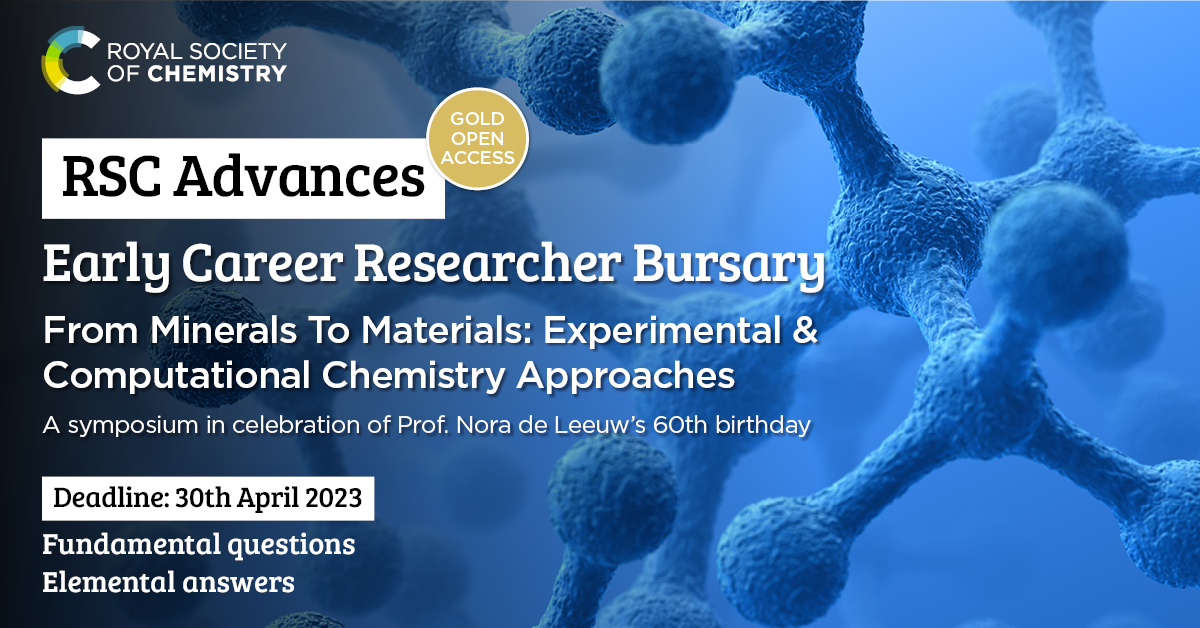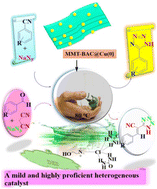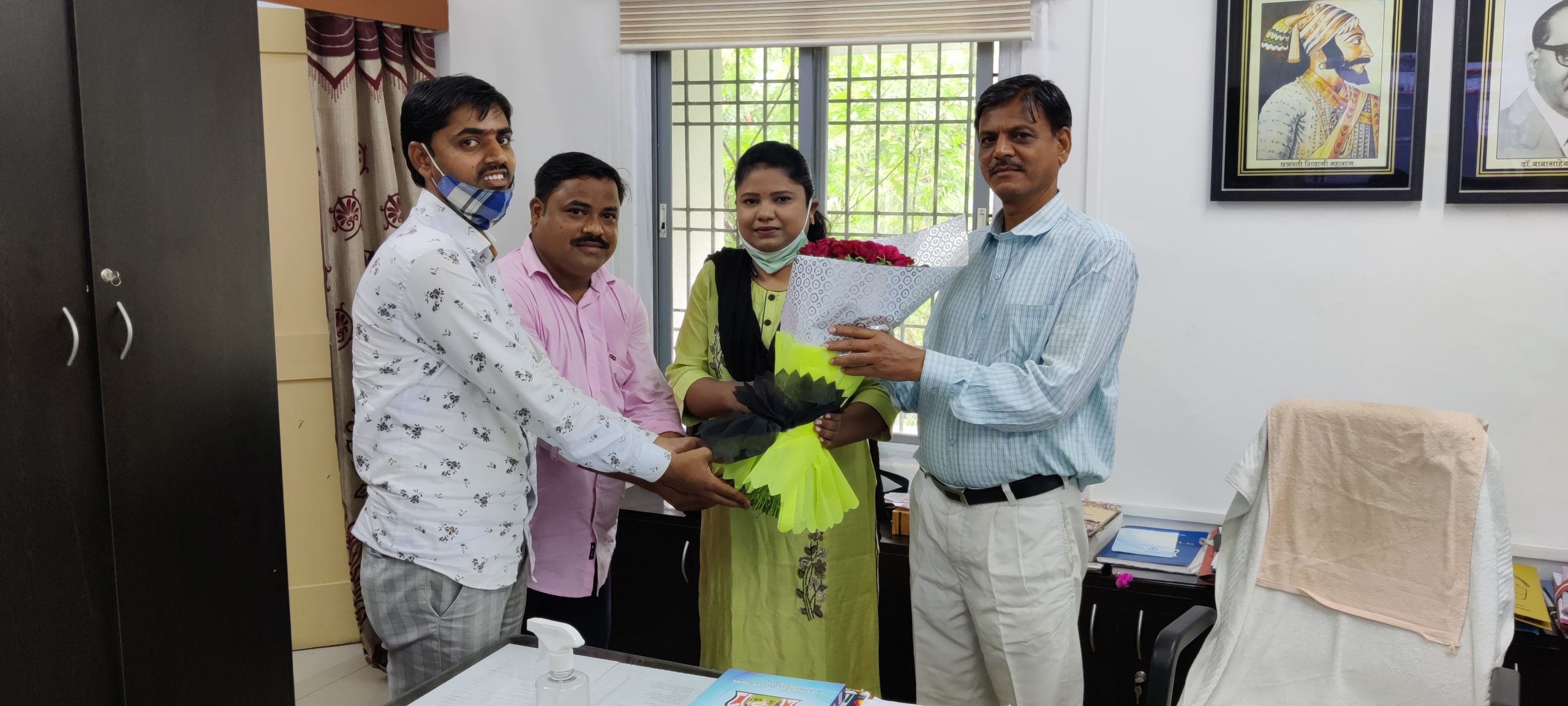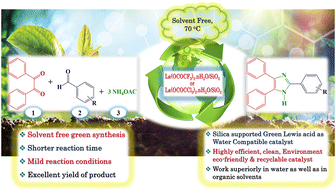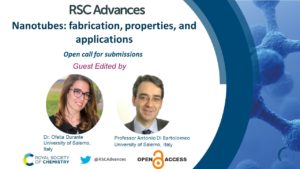We are very pleased to introduce Professor Hossein Eshghi, who is the corresponding author on the paper, Immobilized Cu(0) nanoparticles on montmorillonite-modified with benzalkonium chloride (MMT-BAC@Cu(0)): as an eco-friendly and proficient heterogeneous nano-catalyst for green synthesis of 5-substituted 1H-tetrazoles. The manuscript was well received by reviewers and was handpicked by our reviewers and handling editors to be part of our Popular Advances collection.
Professor Hossein Eshghi told us more about his research group and the work that went into this study and what he hopes to achieve in the future. You can explore other articles in our 2023 Popular Advances online collection here!
The authors:

Dr. Eshghi,
Ferdowsi University of Mashhad, Iran
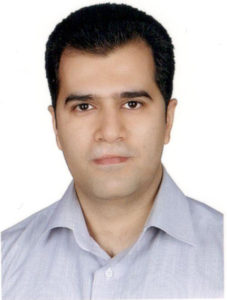
Dr. Rounaghi,
Birjand University of Technology, Iran

F. Pirani,
Ferdowsi University of Mashhad, Iran
- Could you briefly explain the focus of your article to the non-specialist (in one or two sentences only) and why it is of current interest?
This paper introduces an eco-friendly and efficient approach for the synthesize of 5-substituted 1H-tetrazole derivatives from raw materials of benzonitrile and sodium azide through the [2+3] cycloaddition reaction as well as 2-(1H-tetrazole-5-yl) acrylonitrile derivatives as the preferred product from raw materials of aldehyde, malononitrile, and sodium azide through multicomponent domino reactions (MDRs) in the presence of the MMT-BAC@Cu(0) nanoclay as a proficient heterogeneous catalysis in mild conditions.
- How big an impact could your results potentially have?
The MMT-BAC@Cu(0) nanocatalyst used benefits from properties such as high surface reactivity, biocompatibility, non-toxicity, and inexpensiveness. Some advantages of the green solvent used in the study are non-flammability, high solubility, degradability, inexpensiveness, recyclability, and non-volatility. This method was proven to be more efficient than previous methods, which employed hazardous organic solvents and toxic metals and performed the process with a longer reaction time. Using the proposed approach, the reaction was made in a shorter time under green conditions with good to excellent efficiency and without the need for additional reagents.
- Could you explain the motivation behind this study?
In this study, Cu(0) nanoparticles supported on organo-modified montmorillonite with benzalkonium chloride (MMT-BAC@Cu(0)) were synthesized and used as a heterogeneous and green catalyst for synthesis of 5-substituted 1H-tetrazoles. A recent focus has come to using clay minerals as heterogeneous and green catalysts. In this regard, montmorillonite (MMT) clay has drawn particular attention due to its high abundance, cation exchange capacity, and other high surface areas. It is no wonder that the synthesis of tetrazoles has turned into a hot topic in the organic field so dramatically that it has drawn huge focus and attention in academic research and industrial areas. However, because that the protocols used in the synthesis of 5-substituted 1H-tetrazoles usually include the application of common organic solvents or catalysts whose synthesis path is not green and economical. We sought to change the protocol for the synthesis of 5-substituted 1H-tetrazoles through the design of stable nanoclay as catalysts with interesting features such as the stability of synthesized nanocatalysts, non-leaching with products, and widespread application in the synthesis of two significant classes of 5-substituted 1H-tetrazoles through the [2+3] cycloaddition reaction and multicomponent domino reactions (MDRs) reactions. Moreover, while observing the principles of green chemistry, which is one of the important issues in green chemistry and chemical engineering, we utilized the novel green nano catalyst and solvent (DESs).
- In your opinion, what are the key design considerations for your study?
The current project aims to develop a biocompatible nanocatalyst based on immobilized Cu(0) nanoparticles on montmorillonite -modified with benzalkonium chloride (MMT-BAC@Cu(0)) for the synthesis of 5-substituted-1H-tetrazoles under mild and green conditions. The advantages of availability, low cost, non-toxicity, and biocompatibility of clay were our focus in synthesizing this nanoclay catalyst in this project. The method’s advantages include good to excellent product yields, mild conditions, easy work-up, short reaction times and easy reuse of the nano catalyst.
- Which part of the work towards this paper proved to be most challenging?
Since the clay is a naturally formed mineral, its composition, properties and even the organic chemical modifiers used during subsequent modification process can alter in different ways. Hence, the selection of a proper nanoclay material is of crucial importance. The MMT-BAC@Cu(0) nanocatalyst used benefits from properties such as high surface reactivity, biocompatibility, non-toxicity, and inexpensiveness. Some advantages of the green solvent used in the study are non-flammability, high solubility, degradability, expensiveness, recyclability, and non-volatility. This method was proven to be more efficient than previous methods, which employed hazardous organic solvents and toxic metals and performed the process with a longer reaction time.
- What aspect of your work are you most excited about at the moment?
An eco-friendly and efficient approach for the synthesize of 2-(1H-tetrazole-5-yl) acrylonitrile derivatives as the preferred product from raw materials through multicomponent domino reactions (MDRs) was introduced. This is significant because heterocyclic compounds are of great pharmacological importance and changes in the conditions of the synthesis protocol to achieve sustainable development are among the important issues we considered in this paper.
7.What is the next step? What work is planned?
We hope that the presented method can be generalized in the future to synthesize heterocyclic derivatives with important biological properties to be used in valuable research projects by adhering to the principles of green chemistry. This work opens us a window for the synthesis of other chemical derivatives using heterogenous clay based nanocatalysis.
Submit to RSC Advances today! Check out our author guidelines for information on our article types or find out more about the advantages of publishing in a Royal Society of Chemistry journal.
Keep up to date with our latest Popular Advances, Reviews, Collections & more by following us on Twitter. You can also keep informed by signing up to our E-Alerts.
Comments Off on RSC Popular Advances Interview with Hossein Eshghi












